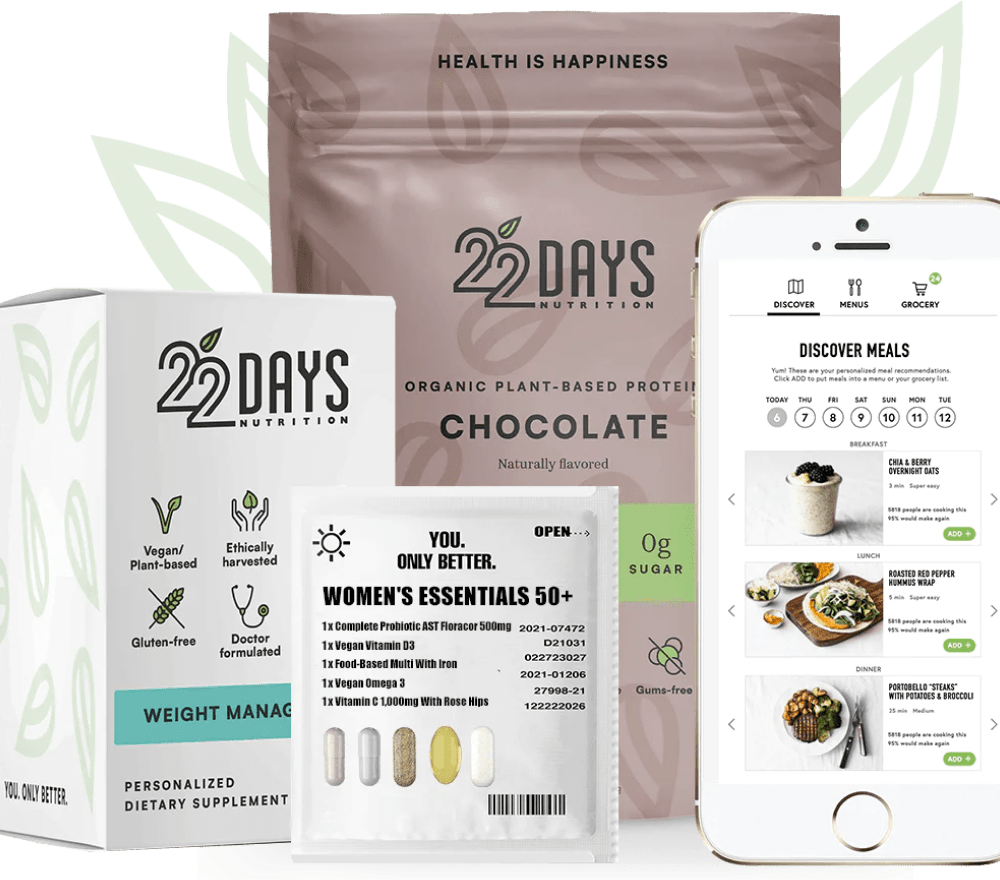What Is Glyphosate and Is It Dangerous?
If you’re not eating 100% organic, you need to know about glyphosate.

The foreign compounds and impossible-to-pronounce ingredients in many food and supplement products are alarming enough, but what’s more concerning are the chemicals not listed. For example, chemicals and herbicides used to treat crops that eventually land on our plates are on the back of any ingredient list. Glyphosate is one of them. But what is glyphosate, how do you pronounce it, and is it dangerous? We’ve done our research, and here’s what we found.
What Is Glyphosate?
Glyphosate (glai-fow-suht) is a common synthetic herbicide used in commercial agriculture to kill weeds. While not intended for this purpose, it is also sprayed directly on some non-organic crops to speed ripening or ensure all plants reach maturity at the same time. Glyphosate was developed by a Monsanto chemist and has been in use across a wide range of crops since 1974.
How Does Glyphosate Get Into Food?
Because glyphosate is sprayed directly on and around crops, it is inevitable that the plants are harvested with some trace of this herbicide. Further, the herbicide cannot be washed off or broken down by cooking or baking, and it remains stable for up to a year (meaning time won’t diminish the amount that’s in your food). The grassroots organization Food Democracy Now! published a study by an independent FDA registered laboratory in 2016 that measured the concentrations of glyphosate in common American foods such as cereals, cookies, and crackers. The highest concentration of glyphosate per serving was found in Original Cheerios followed by Stacy’s Simply Naked Pita Chips and Honey Nut Cheerios. A more recent study conducted by the Environmental Working Group in 2018 also found glyphosate in a number of cereals as well as Quaker oats and various popular store-bought granolas. While these studies specifically analyzed processed food items, the chemical can also be found on beans, nuts, and produce, as some farmers use it to speed the maturity process of the plants. For example, non-organic chickpeas have been found to contain an increasing amount of glyphosate.
Is Glyphosate Dangerous?
Several claims have been made regarding the side effects of glyphosate, but the most prominent comes from the World Health Organization’s International Agency for Research on Cancer (IARC). The organization went public and stated that glyphosate is a probable human carcinogen. The United States Environmental Protection Agency has since refuted the statement, arguing that they used a “more extensive dataset” than the IARC to determine the likelihood of a link to cancer in humans. However, the EPA’s statement is not entirely certain in this stance; it only asserts, “glyphosate is likely not to be carcinogenic to humans.” It’s also notable that a single—or even multiple—serving of a glyphosate-contaminated food is not enough to trigger a carcinogenic effect. The concern is that it could cause problems over time with regular consumption. More research is needed, but until then, all of our products at 22 Days Nutrition are glyphosate-free.
How to Avoid Glyphosate
Truly organic foods should not be treated with glyphosate and should not pose a threat. All of our plant-based protein powders and vitamin supplements are one hundred percent organic and certified glyphosate-free. To minimize your intake of this herbicide, reach for organic produce and products when you can.
Check out our range of 22 Days Nutrition plant-based vitamin supplements for fuel you can trust (and pronounce).





